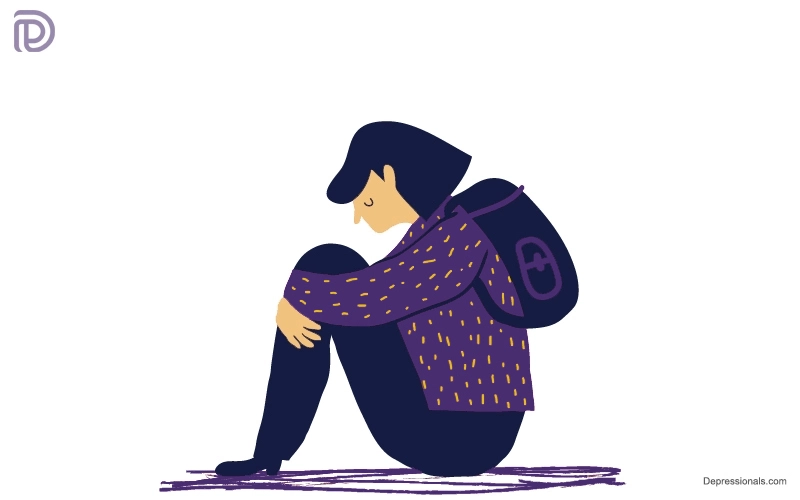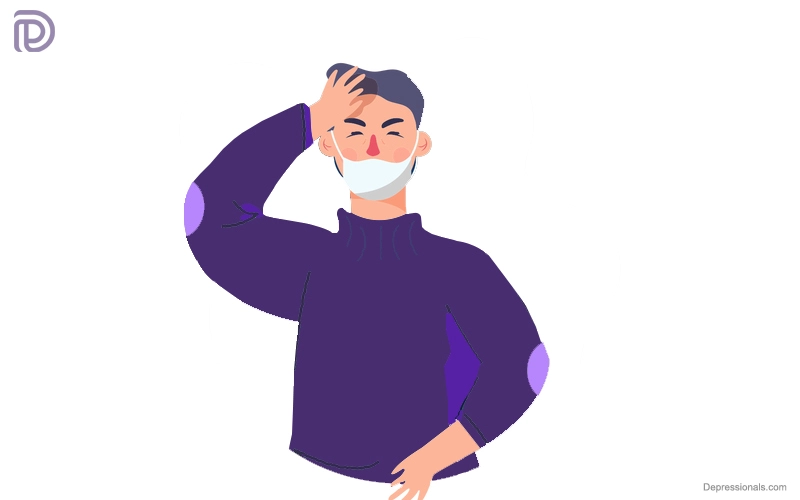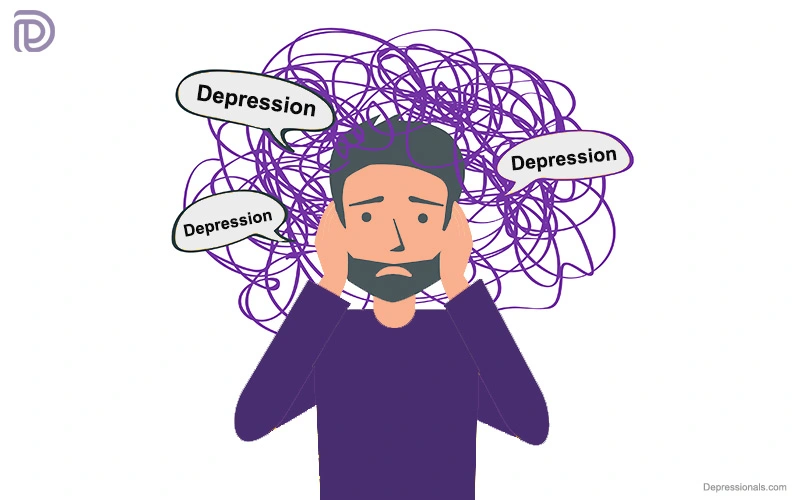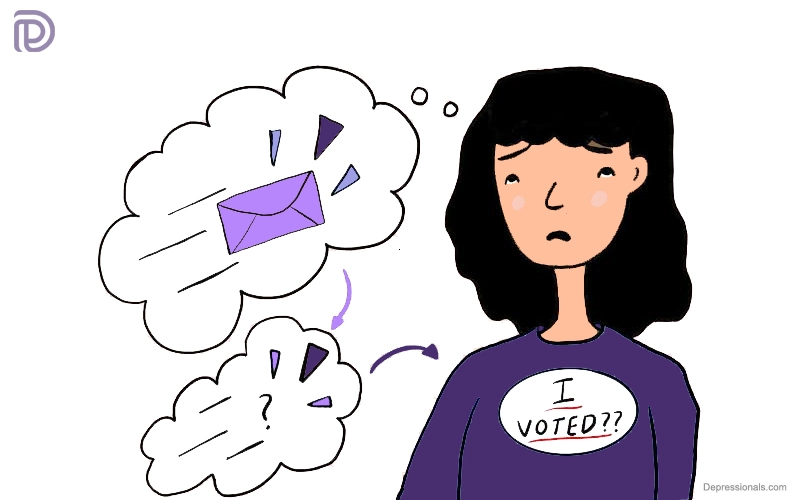Depressive illnesses include episodes of persistent depressive disorder that range from mild to moderate. For two years or more, the person will probably be sad or depressed most of the time, on most days.
Anyone at any age can suffer from PDD, which is fairly common. Effective treatment relies on a combination of medications, counseling and lifestyle changes.
What is persistent depressive disorder?
Persistent depressive disorder (dysthymia) is a form of depressive disorder that describes a condition of extreme sadness over a long period. The diagnosis is relatively new and is a combination of chronic major depressive disorder and dysthymia.
Although dysthymia is not as serious as major depression, it tends to last longer. PDD triggers feelings of despair and deep sadness that last for an extended period. You may experience these feelings both psychologically as well as physically, including sleep and appetite.
Therefore, people with the disorder usually lose interest in daily activities and find it difficult to complete daily tasks. People who suffer from persistent depression say they have been depressed ever since they were young, or they feel they go in and out of depression constantly.
Persistent depressive disorder symptoms are similar to major depression. However, PDD symptoms are often milder and last longer. These kinds of illnesses can linger for a long time, interfering with academics, work and relationships.
It is also harder to manage the symptoms of PDD because they are chronic so it can be challenging. However, patients will benefit from a combination treatment of medication and talk therapy that can be very effective for the treatment of PDD.
Related: Mild, Moderate and Severe Depression
Persistent depressive disorder symptoms
The symptoms of PDD are the same as those of depression. A persistent low mood or sad mood is the main symptom of persistent depressive disorder. People suffering from persistent depressive disorders may also be irritable.
However, PDD is chronic, with symptoms affecting a significant number of people for at least two years. Here are some other PDD symptoms:
- Weight gain or loss
- Sleep deprivation or too much sleep
- Difficulty concentrating
- Indecisiveness
- Pessimism or Hopelessness
- Fatigue
- Changes in appetite
- Difficulty concentrating
- Indecisiveness
- Decreased productivity
- Low self-esteem
- Negative attitude
- Avoiding social activities
The symptoms of PDD generally begin in childhood or adolescence. The PDD child or adolescent shows signs of becoming pessimistic, irritable, moody, etc. for an extended period.
Other symptoms may include behavior disorders, poor performance in school, and difficulty interacting with peers. The severity of PDD symptoms can vary over time and may fluctuate, over several years.
Difference between depression and persistent depressive disorder
Depressive disorders include persistent depressive disorder. There are several types of depression, but this type is less severe than major depressive disorder. Adults with this condition must have it for two years, while children and teens need it for one year. It is essential that symptoms of PDD are absent for at least two consecutive months during this time.
Related: Postpartum Depression
Causes of persistent depressive disorder
It is unknown what causes PDD. The development of this disorder may be occurred by certain factors. The following are some causes of PDD:
- An imbalance of chemicals in the brain
- Inherited the condition from family members
- Having another mental health issue, such as bipolar disorder or anxiety
- Traumatic events that cause stress, such as a death in the family or financial troubles
- Conditions such as heart disease and diabetes that cause chronic discomfort
- Concussions or other brain injuries
Also, check: Side Effects of Overthinking
PDD diagnosis

A primary care professional may be able to recognize depression in a patient and may refer you to a mental health professional for a full evaluation. When a person is suffering from depression for more than two years, clinicians diagnose it as persistent depression.
Initially, your doctor will conduct a physical examination to diagnose accurately. Other tests such as blood tests or laboratory tests may be performed by your doctor to rule out any medical conditions that may be causing your symptoms.
Whenever your symptoms aren’t explained by any physical explanation, your doctor may suspect that you are suffering from a mental health illness. You will be asked several questions by the doctor to assess your current emotional and mental state.
When discussing your symptoms with your doctor, be truthful. If you respond accurately, the doctor will diagnose whether you have PDD or another mental disorder.
Many PDD cases are diagnosed using DSM-5 symptoms. The American Psychiatric Association published this manual.
A DSM-5 list of PDD symptoms includes:
- An almost constant state of depression for most of the day
- Overeating or having a poor appetite
- Insomnia or stay asleep
- Weakness or fatigue
- Poor self-esteem
- Difficult to make decisions because of poor concentration
- Hopelessness
An adult must suffer from depression for at least two years to be diagnosed. Children or teens must experience depressive feelings or excessive irritability most days of the week for at least one year before they will be diagnosed with the disorder.
There is no need to wait two years before getting treatment! People with symptoms for four months or less can still receive treatment for persistent or distressing symptoms.
Most doctors who believe you have PDD will recommend that you seek mental health treatment.
Read: What is a Depressive Episode?
Complications
Persistent depressive disorder may be associated with the following conditions:
- A reduction in quality of life
- Mood disorders, including depression and anxiety
- Substance abuse
- Conflicts within the family and difficulties in relationships
- The inability to perform well at work and school
- Illnesses and chronic pain
- Having suicidal thoughts or acting in a suicidal manner
- Mental health disorders or personality disorders
Do Americans suffer from dysthymia?
About 1.5% of adult Americans suffer from dysthymia, according to the National Institute of Mental Health. However, dysthymia can hinder your functioning and prevent you from feeling your best. Children and adults can develop dysthymia, which is more common in women.
Expected duration
Persistent depression can appear at any age, even in childhood. There can be mood swings, lower moods tend to dominate and are persistent. A course of treatment can decrease the severity of the symptoms and the length of time they last.
Prevention
It is not currently known how to prevent persistent depression.
Persistent depressive disorder treatment
Medications and therapy are used for the treatment of PDD. Talk therapy is thought to be less effective than medication when used alone. In many cases, the best course of dysthymia treatment is a combination of medications and talk therapy.
Medications
The following types of antidepressants can treat PDD:
- Sertraline (Zoloft) and fluoxetine (Prozac) are SSRIs, which inhibit serotonin reuptake
- Asendin (amitriptyline) and Elavil (amitriptyline) are tricyclic antidepressants
- Desvenlafaxine (Pristiq) and duloxetine (Cymbalta) are SNRIs, which inhibit norepinephrine and serotonin reuptake
It may be necessary to try various medications and dosages before you find an effective treatment. The medication has to take effect for several weeks, so patience is required.
If you are concerned about your medication, talk to your doctor. Depending on your medical condition, your doctor may recommend changing dosage or medication.
Consult your doctor before stopping a medication without first talking to them. Withdrawal-like symptoms can occur if you suddenly stop your medication or miss several doses. Depressive symptoms may worsen.
Must read: Double Depression Disorder
Talk therapy
Many people with PDD benefit from talk therapy. The benefits of counseling include:
- Be open to your feelings and thoughts
- Managing your emotions
- Adapt to a crisis or a life challenge
- Understand the feelings, thoughts, and behaviors that aggravate symptoms
- Make positive changes to negative beliefs
- Get a sense of control over your life and gain satisfaction
- Be realistic with your goals
The process of talk therapy can be done privately or in a group. Support groups provide a safe environment where people who experience similar problems can share their feelings.
Lifestyle changes
You should participate actively in your treatment plan as PDD is a long-term condition. Some lifestyle changes can complement medicine and ease symptoms.
There are several remedies, including:
- Exercise daily
- Each rich food, such as fruits and vegetables
- Avoid alcohol and drugs
- Seeing an acupuncturist
- Take certain supplements such as fish oil and St. John’s wort
- Practicing tai chi, yoga or meditation
- Write daily, what’s on your mind
Read: What is Antenatal Depression?
When to call a professional
If you or a loved one is suffering from this disorder, you should consult a health care professional.
Read: Biology of Depression
Living with dysthymia
An individual suffering from this disorder has an excellent outlook on treatment. There is often a significant reduction in the intensity and duration of symptoms. Many people completely recover from these symptoms.
A person without treatment is more likely to suffer from the illness for a longer period, suffer a decreased quality of life and develop major depression in the future.
Symptoms often return even after successful treatment. To prevent this, maintenance treatment is prescribed.
Whenever you feel overwhelmed by your symptoms, you can call the National Suicide Prevention Lifeline at 800-273-8255. The customer service team is available 24 hours a day, 7 days a week to answer any questions you may have. Also, you can find more assistance and resources on their website.






You should take part in a contest for one of the best blogs on the web. I will recommend this site!
Excellent read, I just passed this onto a friend who was doing a little research on that. And he actually bought me lunch since I found it for him smile So let me rephrase that: Thank you for lunch! “High living and high thinking are poles apart.” by B. J. Gupta.